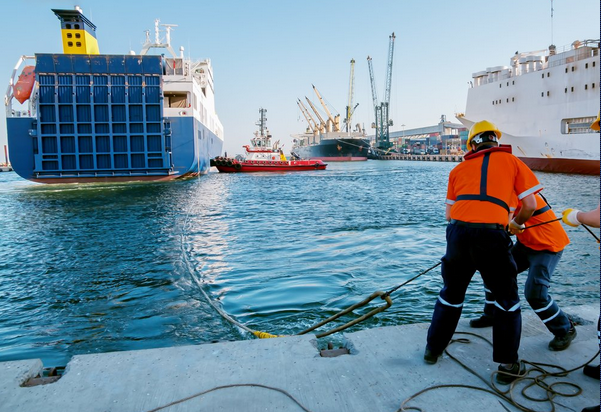Maritime workers face situations and endure conditions that would send most landlubbers into a state of fear and despair. While for the most part they understand the hazards they’re exposed to and have various ways of coping with them and minimizing the risks, accidents do happen.
Among the most common injury-producing accidents suffered by maritime workers are:
• Slip and falls – Solidly No. 1 in injury claims. In wet conditions, slips are common, and occur on stairwells, on decks and even in crew areas.
• Bumps and collisions – Swinging booms, cranes, dollies, carts, machines and unsecured cargo can bash into workers.
• Lifting and carrying mishaps – A tilting deck in rolling seas can make lifting heavy objects treacherous. Even under ideal conditions, heavy lifting is a risky endeavor.
• Illness – Not every claim is due to an injury. Sometimes, crew members become ill due to unsanitary conditions and improper food preparation.
When the ship is out to sea, an injured worker’s only medical option is the onboard medical staff, also known as the infirmary or sick bay. This can be a real asset or pose a real risk, if the personnel are inadequately trained. In extreme cases a transport helicopter might be needed, but weather and sea conditions can play a role in whether a helicopter can be dispatched.
Filing Your Maritime Claim – The Don’ts
An injury at sea is almost always breaking news around the ship. It’s impossible to keep something like that a secret. But regardless of the severity of the injury or the manner in which it occurred, it’s vital to maintain a grasp on the facts, because ultimately, it’s up to you to set the record straight on what happened.
As word of your injury reaches management, they will naturally want to talk to you. Be very, very careful of what you say, if anything. While you don’t want to be rude or uncooperative, you must protect your interests. And by all means, do not submit to a recorded statement. You cannot be compelled to provide a recorded statement at any point in the process.
Your compensation, if you decide to contact a maritime lawyer and file a claim, will be tied directly to the degree to which the employer or ship owner is negligent. Insurance company adjusters, and the attorneys on their side are masters of manipulation, and anything you say prior to the case going to court can be twisted and used against you. Don’t think you can outfox a seasoned pro!
Don’t sign any documents, approve any settlement offers or sign any statement without consulting a maritime attorney.





